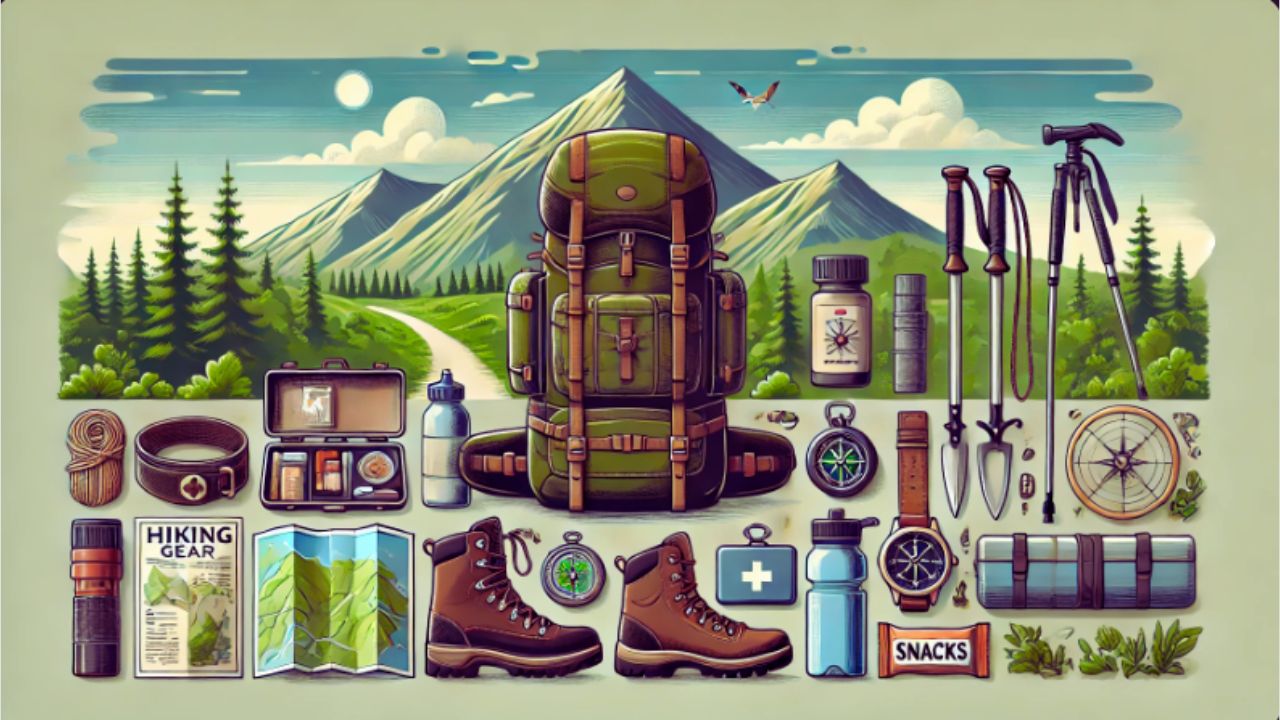Going on a hiking adventure? Whether you’re a beginner or a seasoned hiker, it’s crucial to pack the right gear. Here’s a human-friendly list of items you’ll need for a safe and enjoyable hiking experience:
1. Footwear
- Hiking Boots/Shoes: Durable, waterproof, and comfortable boots with good grip. Match them to the terrain (lightweight for flat trails, sturdy for rocky paths).
- Hiking Socks: Invest in moisture-wicking and cushioned socks to prevent blisters.
2. Clothing
- Layered Clothing:
- Base Layer: Moisture-wicking shirts (avoid cotton; choose synthetic or merino wool).
- Middle Layer: Insulating layers like fleece or down jackets for warmth.
- Outer Layer: Waterproof and windproof jackets.
- Comfortable Pants/Shorts: Quick-drying and stretchy materials are best.
- Hat and Gloves: Sun hat or beanie (depending on weather) and gloves for colder hikes.
- Gaiters (optional): To keep debris or snow out of your shoes.
3. Backpack
- Choose a comfortable, lightweight backpack with adjustable straps. Capacity depends on the trip (20–30L for day hikes, 50L+ for multi-day trips).
4. Navigation Tools
- Map and Compass: Old-school essentials that don’t rely on batteries.
- GPS Device or Smartphone App: Download offline maps before your hike.
- Headlamp/Flashlight: With extra batteries, in case you’re delayed or hiking at night.
5. Hydration and Food
- Water Bottles or Hydration Bladder: Aim for at least 2–3 liters for a day hike.
- Water Purification Tools: Filters, tablets, or a UV purifier for longer hikes.
- Snacks: High-energy options like trail mix, protein bars, and dried fruit.
- Meals (if needed): Lightweight, dehydrated meals for multi-day hikes.
6. Safety and Emergency Gear
- First Aid Kit: Include bandages, antiseptic wipes, blister treatments, and personal medications.
- Multi-Tool or Knife: For various small tasks.
- Emergency Blanket: Lightweight and lifesaving in extreme weather.
- Whistle: To signal for help.
- Firestarter: Waterproof matches, lighter, or a fire steel.
7. Protection from the Elements
- Sunscreen: High SPF to protect against UV rays.
- Sunglasses: With UV protection.
- Bug Repellent: Especially in humid or forested areas.
8. Trekking Poles (optional)
- Reduces stress on knees and helps with balance on uneven terrain.
9. Shelter (for Overnight Hikes)
- Tent: Lightweight and easy to set up.
- Sleeping Bag: Choose based on temperature ratings.
- Sleeping Pad: For insulation and comfort.
10. Extras for Comfort
- Camera or Smartphone: To capture memories.
- Notebook and Pen: For jotting down notes or journaling.
- Portable Charger: For keeping electronics powered.
Final Tips
- Pack Light but Smart: Bring only what you need, but ensure your essentials are covered.
- Test Your Gear: Break in new boots and test equipment before your hike.
- Check the Weather: Adjust your clothing and gear accordingly.
Happy hiking! 🥾✨

